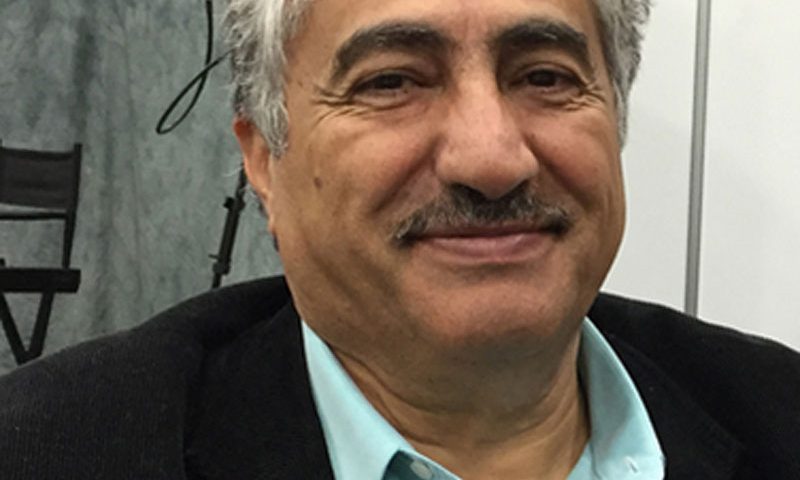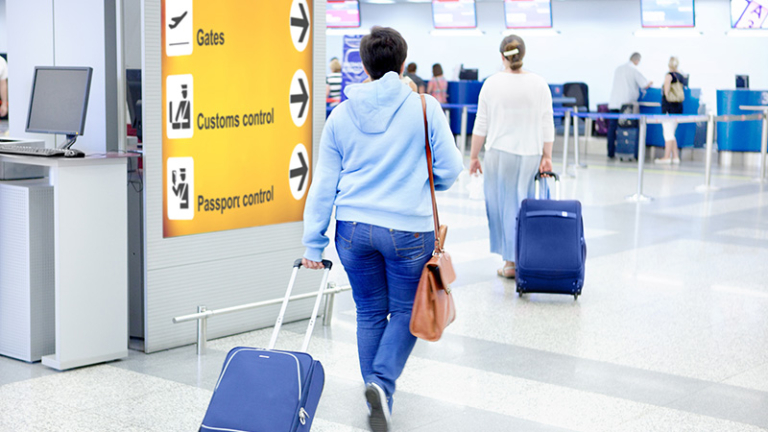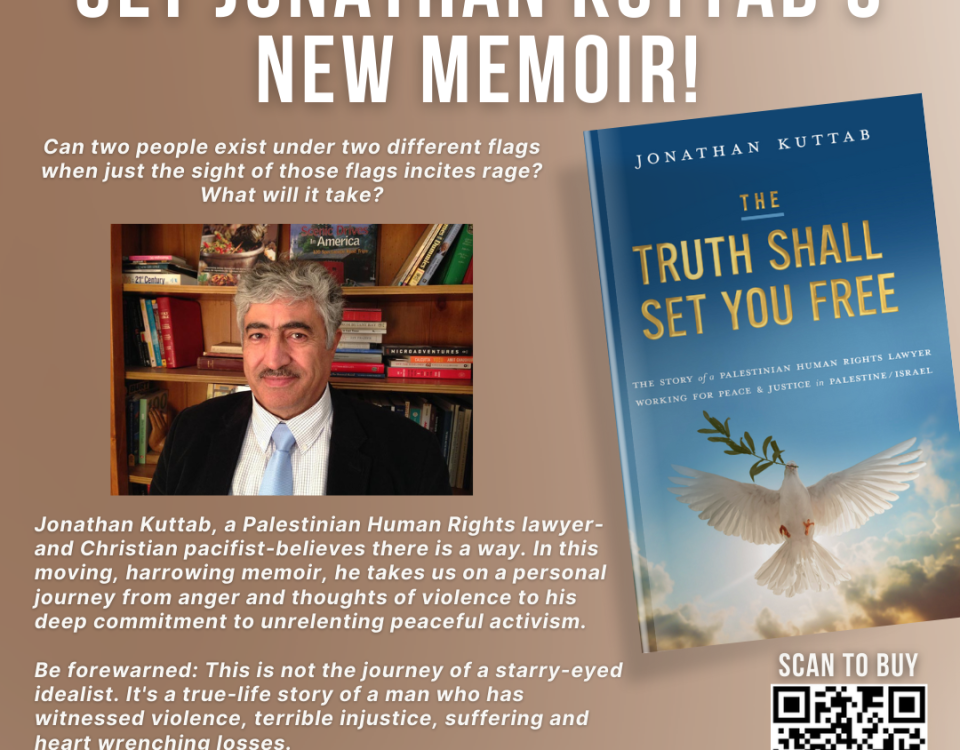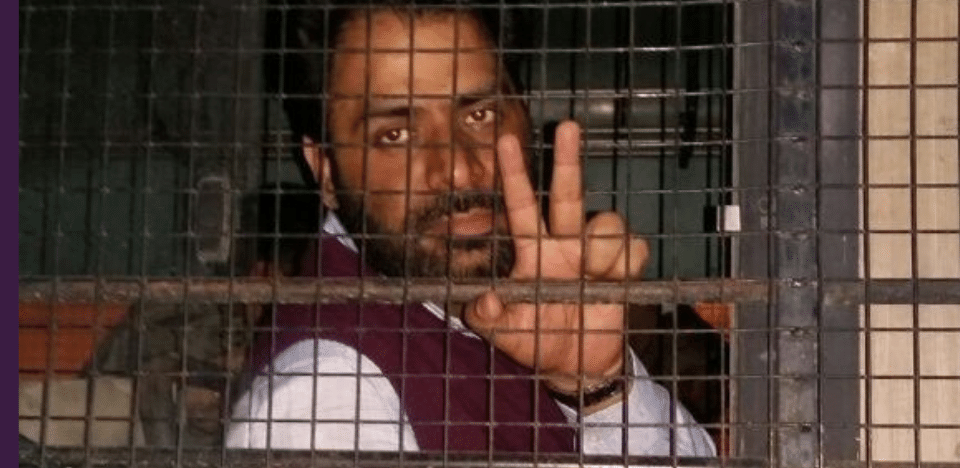Jonathan Kuttab joins webinar “What about Hamas?”
March 11, 2022
Remembering 1967
June 10, 2022
Jonathan Kuttab The Electronic Intifada 8 March 2022
I have found that speaking to diplomats is often a frustrating experience.
They may be very pleasant and even knowledgeable and sympathetic. But when engaged closely they will repeat the official line.
On Palestine, this line is often a repetition of empty platitudes about supporting the two-state solution and strengthening civil society, but doing little or nothing to oppose Israeli policies that clearly undermine even their own declared government positions.
On 17 February, I met Lisa Stadelbauer, the Canadian ambassador in Tel Aviv. Karen Rodman, executive director of Just Peace Advocates, joined us by video conference, as did Chris Hull, the ambassador’s political adviser.
The ambassador was quite attentive and a good listener, but stuck to the official line as I had foreseen would be the case, and was not readily open to shifting away from the positions favored by Israel. She repeated the position of Justin Trudeau’s government as supporting a two-state solution but also did not seem open to challenging Israel’s continued expansion of settlements which clearly undermines such a position.
When I presented copies of my recent book, Beyond the Two-State Solution, for her in English, Hebrew and Arabic, she told me that while Canada still supported the two-state solution, she realized it was not quite as feasible any more. She said she was surprised to be learning that more and more Palestinians seem to favor a one-state solution.
One thing that had changed since when she was in Israel in the mid-1990s, she said, is that the optimism is gone. I agreed.
Apartheid label upsetting
When I asked about Canada’s reaction to the recent Amnesty International report, she said that Canada’s stance is that the label of “apartheid” is unhelpful, shuts down conversation, and upsets people. She also indicated that apartheid is a legal charge, which should be made by courts.
I said, “Which court? The ICC?”
She nodded.
When I countered by saying that my understanding is Canada is against Palestinians going to the International Criminal Court, she affirmed this to be the case.
“Well, that is a contradiction,” I replied. “We cannot use the word apartheid, unless we go to court, but we cannot go to the court, either?”
Palestinian armed resistance is condemned, but when we take legal avenues or nonviolent tactics like boycotts, divestment and sanctions that too is alleged to be legal and economic terrorism.
She nodded and changed the subject. She is, I must say, a very good listener.
War against human rights
I asked her about the six Palestinian human rights organizations that Israel has declared to be “terrorist organizations.” This was the principal issue I hoped to discuss because I am very proud of the human rights work done by Al-Haq, one of the six designated organizations, which I cofounded in 1979.
She frankly stated that she was glad Canada is not one of the funders of any of the six because that would have made things more difficult and been a problem.
Stadelbauer said that the Canadian government asked for clarifications about this issue and that the country’s intelligence services are discussing the matter with Israeli intelligence officials. No decision has been reached as of yet by the Canadian government.
Then, she added, that when a trusted ally says an organization is a terrorist organization, we must pay attention.
“Exactly,” I said. Which is why you need to insist that any anti-terrorism cooperation with Israel is not used to target civil society organizations.
Israel uses “secret evidence” to justify its actions. That is why you cannot just take their word, but must insist on open facts.
If they have evidence, they should publicly present it before they “decapitate” an organization by labeling it terrorist and making its work impossible.
I referred at this point to the civil court case of Mohammad El Halabi, the former World Vision director for Gaza, for whom my office is the legal counsel. I indicated his case had just been delayed for the 23rd time by Israel’s high court.
“Secrecy” is used to camouflage how thin and unconvincing the evidence against him is.
I pointed out that if Al-Haq can be considered “terrorist” then no civil society can develop or be regarded as safely in place.
The ambassador stressed that Canada believes civil society should be protected and promoted. I said that the labeling of the six organizations is precisely the opportunity to demonstrate Canada means it.
Canada, as Israel’s friend, needs to tell Israelis that they value civil society and the work of organizations they are claiming are “terrorist organizations.” I said that even organizations practicing armed struggle should be encouraged to turn to civil and humanitarian work, rather than be prevented from carrying out such activities because their members in the past used armed struggle.
When I raised my concerns regarding the overreach of the International Holocaust Remembrance Alliance (IHRA) definition of anti-Semitism, the ambassador said Canada supported the definition, and indicated that the definition was a result of a long and thoughtful process by academics and other experts.
She then changed the subject when I raised specifics related to how it would label me as a Palestinian or those who support Palestinian human rights as anti-Semitic for criticism of Israel. Later, I met a diplomatic staff member from Canada’s representative office in the West Bank city of Ramallah, who also indicated the IHRA definition was law in Canada, even though I knew that was not the case.
The definition has merely been included in an anti-racism strategy.
Need for leadership
During my meeting with the ambassador, I stressed that until a political solution is reached, there is considerable leadership Canada could show to promote human rights, such as advocacy for lifting the siege of Gaza, and pushing for elections and democracy.
In regard to Gaza, Stadelbauer mentioned the problem of Hamas. Hamas, I said, must also be brought into the conversation, just as the Palestine Liberation Organization was previously.
She replied that Canada’s policy is not to talk to Hamas.
I also referenced the situation in Area C, which comprises more than 60 percent of the West Bank, including the largest blocs of Israeli settlements.
And Karen Rodman provided information related to challenges to the sale of Palestinian products in Canada. Here, the ambassador indicated she expected we would be in touch with her counterpart in Ramallah.
The ambassador asked me if I thought the current Israeli government was any better than the last one. I said “no,” except for the fact that it is bold and blatant about refusing to let Palestinians have a state, or even negotiate with them.
I also reminded her that Palestinians have not had elections for a long time, and that the present Palestinian Authority has serious problems with credibility and legitimacy among its own people.
Later, when I met Canadian diplomatic staff from Ramallah, there was acknowledgment that many Palestinians feel the two-state solution is no longer viable and this information is shared with superiors in Ottawa.
Our interlocutor from Ramallah stated that diplomatic staff meet often with several of the six designated organizations. She was unable, however, to be at the last session of El Halabi’s legal case, though she attends many trials and hopes to attend future sessions to show concern and solidarity with El Halabi.
All in all, I felt that the position of the Canadian government continues to be solidly pro-Israeli, but that the government and its representatives recognize that there are contradictions leading to Canada not contributing to peace or justice in the area.
At any rate, the ambassador in Tel Aviv and diplomatic staff from Ramallah got to hear my point of view and hopefully will be better prepared when it becomes clear that the status quo is no longer tenable.
Jonathan Kuttab cofounded Al-Haq and is an international human rights lawyer and activist.






